Best Majors for Genetic Counseling Career: A Comprehensive Guide for Aspiring Genetic Counselors
Key undergraduate majors for genetic counseling careers, highlighting foundational knowledge and skills for aspiring genetic counselors.
CAREER ADVICEAPPLICATION HELPCAREER INFORMATION


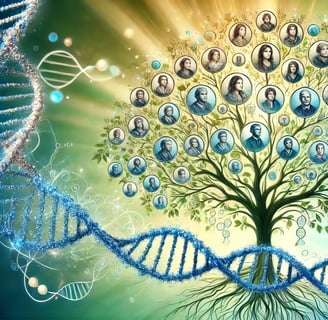
Best Majors for Genetic Counseling Career: A Comprehensive Guide for Aspiring Genetic Counselors
The field of genetic counseling is a unique and evolving intersection of healthcare, genetics, and patient support. As medical advancements continue to uncover new genetic insights, the demand for genetic counselors is steadily rising. Whether it’s helping patients understand genetic risks, making informed decisions about family planning, or navigating complex diagnoses, genetic counselors play a vital role in modern medicine. But before embarking on a career in this specialized field, choosing the right undergraduate major can be the key to laying a strong foundation.
In this guide, we explore the most relevant undergraduate majors for aspiring genetic counselors, why they matter, and how they align with the career's demands. If you're aiming to transition into genetic counseling, your educational path will need to balance scientific expertise, clinical skills, and compassionate patient interaction. Let’s dive into the best majors that can set you up for success in genetic counseling.

Biology: A Foundation in Life Sciences
Why It’s Relevant: A major in biology is one of the most traditional yet essential pathways for those aspiring to become genetic counselors. The discipline offers a comprehensive understanding of life sciences, including cellular biology, human anatomy, physiology, and importantly, genetics. Key courses in molecular biology, human genetics, and developmental biology build a robust knowledge base that will be indispensable when interpreting genetic data and counseling patients.
Key Coursework for Genetic Counselors: Embryology, molecular genetics, and biostatistics are some critical classes that biology majors should prioritize. Understanding how genetic mutations occur, how they are inherited, and how they manifest clinically can directly impact your ability to assess genetic risks and communicate them effectively.
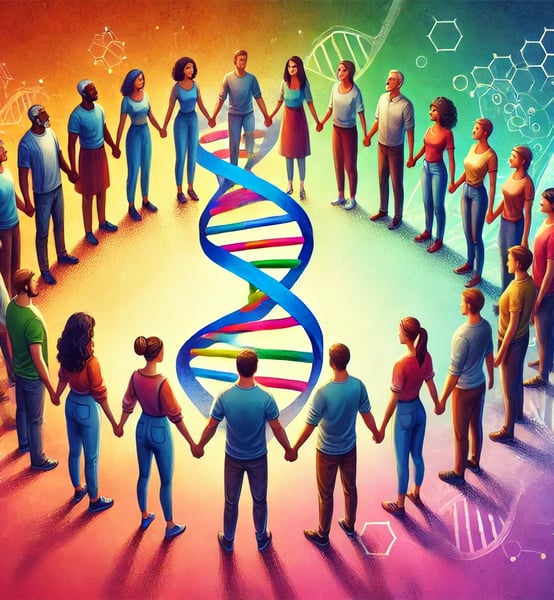

Genetics: Direct Alignment with Core Genetic Counseling Skills
Why It’s Relevant: Genetics as a major is nearly a perfect match for those considering a career in genetic counseling. You’ll dive deep into the study of heredity, genetic variation, and molecular genetics. Students are exposed to the very principles of genetic counseling, from understanding the mechanisms of genetic disorders to the latest advancements in gene therapy and personalized medicine.
Key Skills Gained: In addition to theoretical knowledge, genetics majors often get hands-on lab experience in techniques such as polymerase chain reaction (PCR), genetic sequencing, and karyotyping. Such practical skills not only enhance your understanding but also provide a tangible link between theoretical genetics and real-world clinical applications.


Psychology: Balancing Science with Compassion
Why It’s Relevant: Genetic counseling isn’t only about understanding genes; it’s also about guiding individuals and families through emotionally charged decisions. A major in psychology equips you with the skills needed to handle sensitive conversations, build rapport with clients, and understand family dynamics. These soft skills are crucial when delivering complex or distressing genetic information.
Important Areas of Study: Courses in abnormal psychology, family therapy, and behavioral health provide insights into the psychological impact of genetic conditions. Counselors frequently encounter families coping with grief, uncertainty, or the potential for significant lifestyle changes, making an understanding of emotional and psychological resilience invaluable.


Biochemistry or Molecular Biology: Diving Deep into Genetic Mechanisms
Why It’s Relevant: For those interested in the molecular mechanisms underlying genetic conditions, a major in biochemistry or molecular biology offers an in-depth exploration. These disciplines bridge the gap between chemistry and biology, focusing on DNA, RNA, and protein synthesis—core areas for understanding genetic diseases. This background is essential for interpreting complex genetic tests and understanding the biochemical pathways that lead to disease.
Core Learning Objectives: Expect to delve into courses covering gene expression, metabolic pathways, and cellular signaling. These topics provide the biochemical context needed when discussing how genetic mutations lead to certain conditions, such as cystic fibrosis or Huntington’s disease, with patients and their families.


Public Health: Broadening the Scope Beyond Individual Care
Why It’s Relevant: Public health focuses on population-level health strategies, which include screening programs and genetic epidemiology. Majoring in public health is particularly useful if you're interested in the broader applications of genetic counseling, such as implementing community-based screening initiatives or working in policy and advocacy roles.
Specialization Options: Genetic counseling intersects with public health in areas like health policy, health education, and genetic epidemiology. Courses on public health ethics, population genetics, and community health strategies prepare you to consider genetic risks in the context of public health outcomes and disparities.


Nursing: Combining Clinical Experience with Patient Care
Why It’s Relevant: Nursing majors bring a wealth of clinical experience to genetic counseling, enhancing their ability to deliver patient-centered care. Nursing programs emphasize patient interaction, clinical protocols, and ethical considerations—essential skills for any genetic counselor. This background is particularly beneficial in settings such as prenatal or oncology genetic counseling, where complex medical and ethical issues frequently arise.
What You’ll Learn: A nursing major covers a wide range of topics, from anatomy and pharmacology to patient communication strategies. These skills help ensure that you not only understand the genetic aspects but can also manage patient care holistically, keeping their medical and emotional needs front and center.


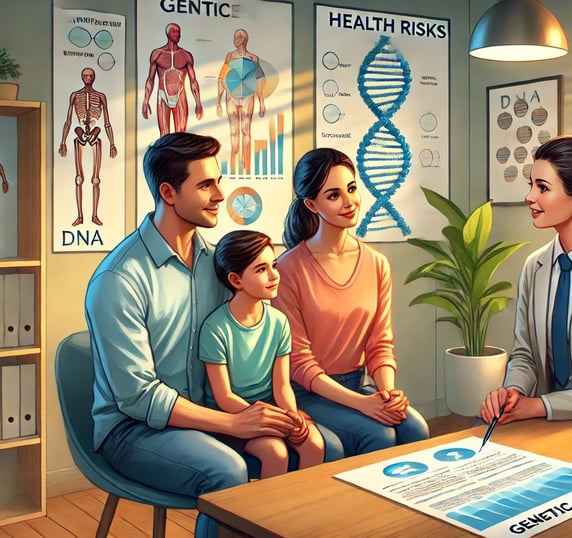

Human Development or Family Studies: Understanding Family Dynamics and Growth
Why It’s Relevant: A major in human development or family studies focuses on the social and psychological dimensions of human growth, which is highly relevant for genetic counseling. Given that genetic conditions often affect entire families, understanding family dynamics, communication patterns, and developmental psychology is critical.
Where It Applies: Courses on family systems, childhood development, and life-span psychology are especially useful when working with families making decisions about inherited conditions. You’ll also gain insights into how different stages of life and family structures can influence health decisions and emotional responses.
Health Sciences or Pre-Medicine: A Broad Approach to Healthcare Preparation
Why It’s Relevant: If you’re looking for a well-rounded major that covers the essentials of healthcare, a degree in health sciences or pre-medicine provides a strong interdisciplinary foundation. These programs typically include courses in anatomy, physiology, pathology, and genetics—ensuring you have the medical knowledge required to transition into genetic counseling.
Advantageous Courses: Ethical decision-making in medicine, medical genetics, and patient communication are among the courses that offer direct preparation for genetic counseling. This broad curriculum gives you a solid grasp of the healthcare landscape, enabling you to connect genetic risks to overall health management.
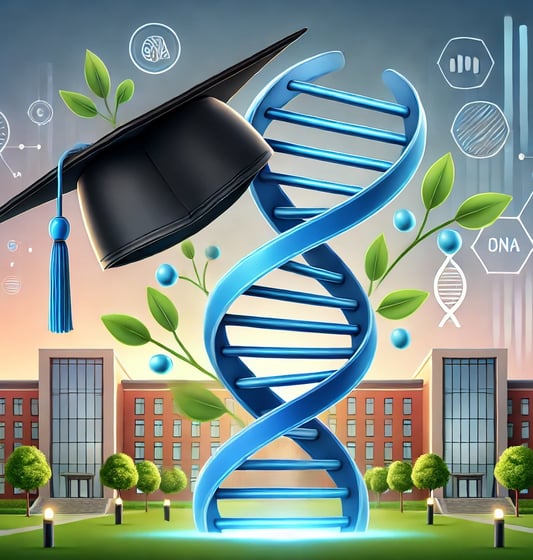

Next Steps: Graduate Education and Certification
Completing a relevant undergraduate major is just the first step. Aspiring genetic counselors will need to pursue a master’s degree in genetic counseling from an accredited program. These programs, recognized by the Accreditation Council for Genetic Counseling (ACGC), offer a mix of advanced coursework in genetics, clinical rotations, and counseling skills.
Clinical Rotations: During your master’s program, you’ll complete clinical rotations in areas like prenatal, pediatric, and oncology genetics, gaining hands-on experience under the supervision of certified genetic counselors.
Certification Requirements: After earning your degree, the next step is to pass the American Board of Genetic Counseling (ABGC) exam to become a certified genetic counselor. Certification is vital for establishing credibility and gaining access to diverse job opportunities.
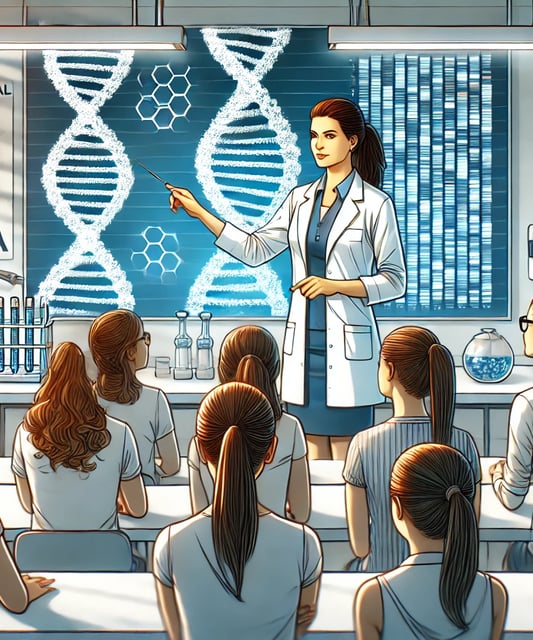

Career Outlook and Emerging Opportunities in Genetic Counseling
The field of genetic counseling is expanding rapidly. Advances in genetic testing, personalized medicine, and genomics are driving the need for professionals who can interpret genetic information and guide patients accordingly. Job prospects are particularly strong in specialties like oncology, reproductive health, and pediatrics, but opportunities are also growing in biotechnology and pharmaceutical industries.
The U.S. Bureau of Labor Statistics (BLS) projects that the demand for genetic counselors will grow much faster than the average for all occupations. This demand is fueled by the increasing availability of genetic tests and the expanding scope of genetic services in areas like preventive health and pharmacogenomics.
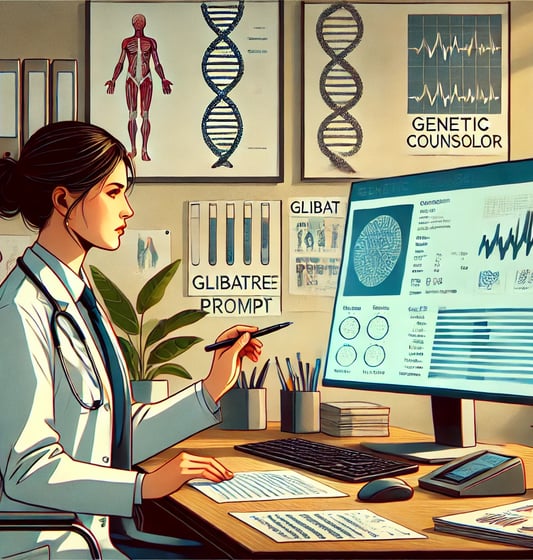


Frequently asked questions
What is the role of a genetic counselor?
Genetic counselors help individuals and families understand the risk of inherited conditions, make informed decisions about genetic testing, and navigate the emotional and ethical complexities of genetic information.
What degree is required to become a genetic counselor?
A master’s degree in genetic counseling is required, followed by certification through the American Board of Genetic Counseling (ABGC).
Can I become a genetic counselor with a psychology degree?
Yes, psychology is a relevant undergraduate major, especially for the counseling aspect of the role. It provides a strong foundation in understanding emotional responses, family dynamics, and effective communication.
Do I need lab experience to pursue genetic counseling?
While it’s not mandatory, lab experience, especially in genetics or molecular biology, can be beneficial. Hands-on experience with genetic testing technologies is valuable for understanding how genetic information is obtained and interpreted.
Is public health a good major for genetic counseling?
Yes, public health offers a broad perspective on how genetic information impacts populations and can be applied in areas like genetic epidemiology, screening programs, and public health genomics.
What are the job prospects for genetic counselors?
The job outlook is excellent, with opportunities expanding in healthcare, research, biotechnology, and personalized medicine. The growing importance of genetics in medicine means that demand for genetic counselors will continue to rise.




